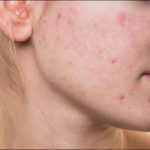Rice water has been a popular beauty treatment for centuries, but it may not suit all skin types. Some people may experience skin irritation, allergies, or dryness and flaking when using rice water. Since rice water can alter the skin’s natural pH, it’s best to patch test it on a small area of skin before applying it to your entire face. Here are some potential side effects of rice water on the skin that you should be aware of.
1 Potential Side Effects of Rice Water on the Skin
Allergies
Rice water may cause allergies in people with sensitive skin or those allergic to the proteins or enzymes in rice water. Allergic reactions can include red rashes, itching, swelling, and hives.
To ensure safety, always patch test rice water on a small area of skin before using it on your face. Monitor for 48 hours, and if any signs of allergy, such as redness, itching, swelling, or hives, appear, wash your face with water and discontinue use. Consult a dermatologist if the allergic reaction persists.
Rice water contains phenolic compounds that can increase skin sensitivity to sunlight, making it more prone to sunburn and increasing the risk of skin cancer.
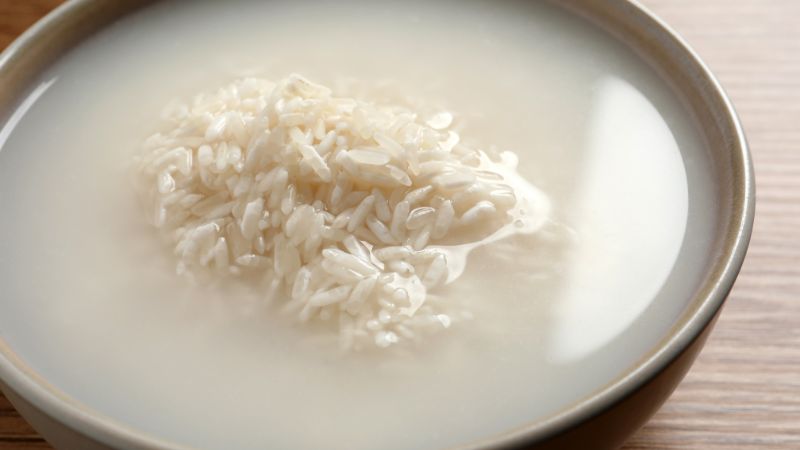 Rice water can cause allergies
Rice water can cause allergies
Increased Sun Sensitivity
Some nutrients in rice water have sun-sensitizing properties, and exposure to sunlight can cause skin damage, leading to pigmentation, skin darkening, and accelerated skin aging.
After using rice water, always apply a sunscreen with an SPF of 30 or higher that protects against UVA/UVB rays to shield your skin from the sun’s harmful effects.
Using sunscreen is crucial to protect your skin, especially after using rice water, as your skin may be more sensitive to sunlight.
Dryness
Rice water can strip away the natural oils from the skin, leading to dryness and flaking, especially for those with naturally dry skin. Overusing rice water can disrupt the skin’s natural balance, making it more susceptible to damage.
It’s best to use rice water in moderation and follow up with a moisturizer.
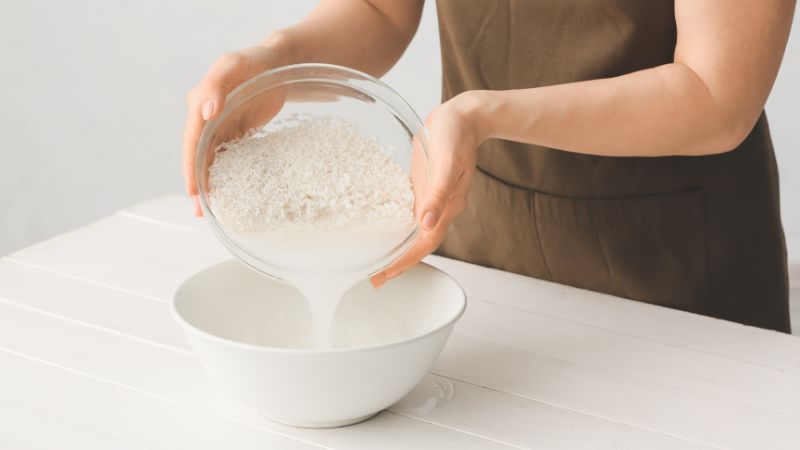 Rice water can cause dryness
Rice water can cause dryness
Risk of Skin Irritation and Infection
If not stored properly, rice water can become a breeding ground for bacteria and mold. Using contaminated rice water can cause skin irritation, redness, and even infection. Therefore, it’s best to rinse the rice thoroughly, store the rice water in a sealed container, and keep it refrigerated.
Eye Irritation
Rice water can irritate the eyes if it accidentally gets into them. In case of eye irritation, rinse your eyes immediately with clean water and use eye drops.
Over-Exfoliation
The starch content in rice water has an exfoliating effect. However, overusing rice water can lead to over-exfoliation, making the skin thin, sensitive, and prone to breakouts.
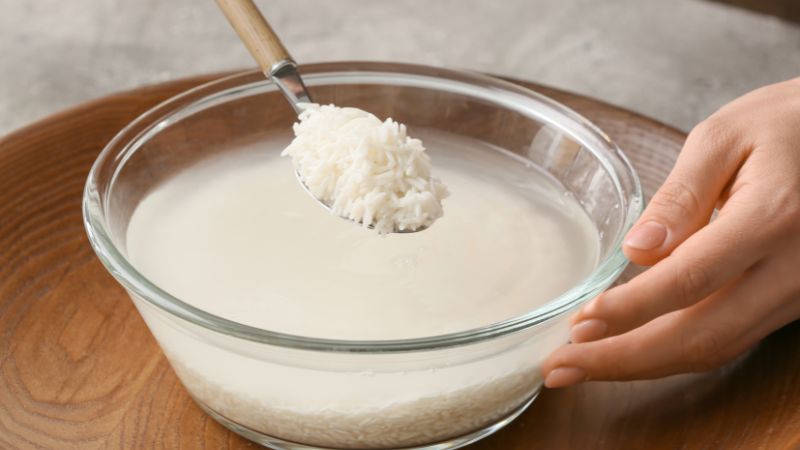 Over-exfoliation
Over-exfoliation
2 What You Need to Know Before Using Rice Water on Your Face
-
Rice water is the starchy water left over after rinsing rice. It contains vitamins, minerals, and amino acids. Ferulic acid in rice water has skin-brightening properties, but its effectiveness depends on various factors, and it cannot significantly alter skin tone.
-
Using contaminated rice water can cause skin irritation and allergies. Therefore, it’s essential to rinse the rice thoroughly and store the rice water properly to prevent bacterial growth. Always patch test rice water on a small area of skin before applying it to your entire face to monitor your skin’s reaction.
-
Applying too much rice water to the face can lead to dryness and flaking. So, use a moderate amount and combine it with suitable moisturizers. Rice water should not replace your basic skincare routine, including sunscreen, cleansing, and moisturizing.
-
Rice water should be refrigerated and used within 24 hours to maintain its freshness and effectiveness. After this period, the rice water may ferment and lose its initial benefits, and it could even be harmful to the skin.
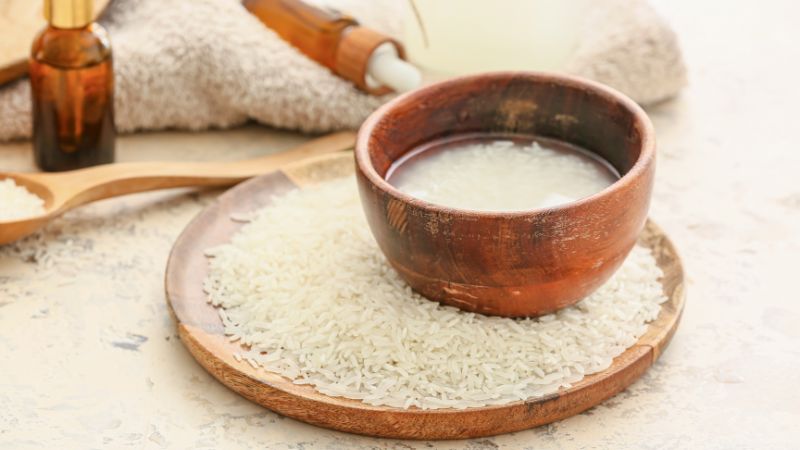 What You Need to Know Before Using Rice Water on Your Face
What You Need to Know Before Using Rice Water on Your Face
Rice water, with its natural nutrients, can offer numerous benefits for the skin when used appropriately. However, it’s essential to consider some critical factors to ensure safety and effectiveness and combine it with a suitable skincare routine for healthy, beautiful skin.
Source: Sức khỏe và Đời sống Newspaper

























